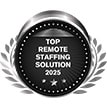Project Manager (May 2021 - Present)
Project Planning & Coordination:
- Develop project plans, schedules, and budgets;
- Define project scope, goals, and deliverables;
- Coordinate with Owner, engineers, and sub – contractors;
Budgeting & Cost Control:
- Prepare and manage project budgets;
- Track project expenses and identify cost-saving opportunities;
- Negotiate contracts with vendors and subcontractors;
Scheduling & Resource Management:
- Develop and maintain project timelines;
- Allocate resources efficiently, including labor, materials, and equipment;
- Adjust schedules as needed to meet deadlines;
Compliance & Safety:
- Ensure compliance with building codes, permits, and regulations; o
- Implement and enforce safety protocols on-site;
- Conduct risk assessments and resolve any potential issues;
Team Leadership & Communication:
- Supervise and coordinate work among project teams;
- Provide guidance and problem-solving support to team members;
- Maintain clear communication with clients, stakeholders, and regulatory agencies;
Quality Control & Reporting:
- Monitor project progress and ensure work meets quality standards;
- Prepare and submit project status reports;
- Address and resolve project issues or delays;
Project Assignments:
June 1, 2021 – November 30, 2021
Project Name: Brentville International Arborage B - Site Development and Site Electrical
Total Lot Area: 3.95 Hectares Location: Brgy Mamplasan, Biñan,Laguna
Developer: FILINVEST DEVELOPMENT CORPORATION
June 1, 2021 – June 30, 2023
Project Name: Vireya Phase 3 Site Development and Site Electrical Development
Total Lot Area: 3.95 Hectares
Location: Tagaytay Midlands, Tanauan, Batangas
Developer: HIGHLANDS PRIME INC. – SM PRIME INC.
May 2, 2022 – March 15, 2024
Project Name: Rosewood Place Land Development Works
Total Lot Area: 15.9 Hectares
Location: Brgy. Hugo Perez, Trece Martires, Cavite
Developer: FILINVEST DEVELOPMENT CORPORATION
June 4, 2023 – September 2023
Project Name: Construction Of Six (6) Mock Up Units Model Abegail
Location: Brgy. Hugo Perez, Trece Martires, Cavite
Developer: FILINVEST DEVELOPMENT CORPORATION
August 7, 2023 – Present
Project Name: Construction Of Three Hundred (300) Housing Units Model Abegail - Rosewood Place Phase 1c
Location: Brgy. Hugo Perez, Trece Martires, Cavite
Developer: FILINVEST DEVELOPMENT CORPORATION
October 4, 2023 – February 29, 2024
Project Name: Construction of Silt Pond
Location: Greenlands Community, Tagaytay Midlands, Tanauan, Batangas
Developer: HIGHLANDS PRIME INC. – SM PRIME INC
October 28, 2023 – December 1, 2023
Project Name: REBCOR Batching Plant 2 Silo
Location: Brgy. Hugo Perez, Trece Martires, Cavite


























































